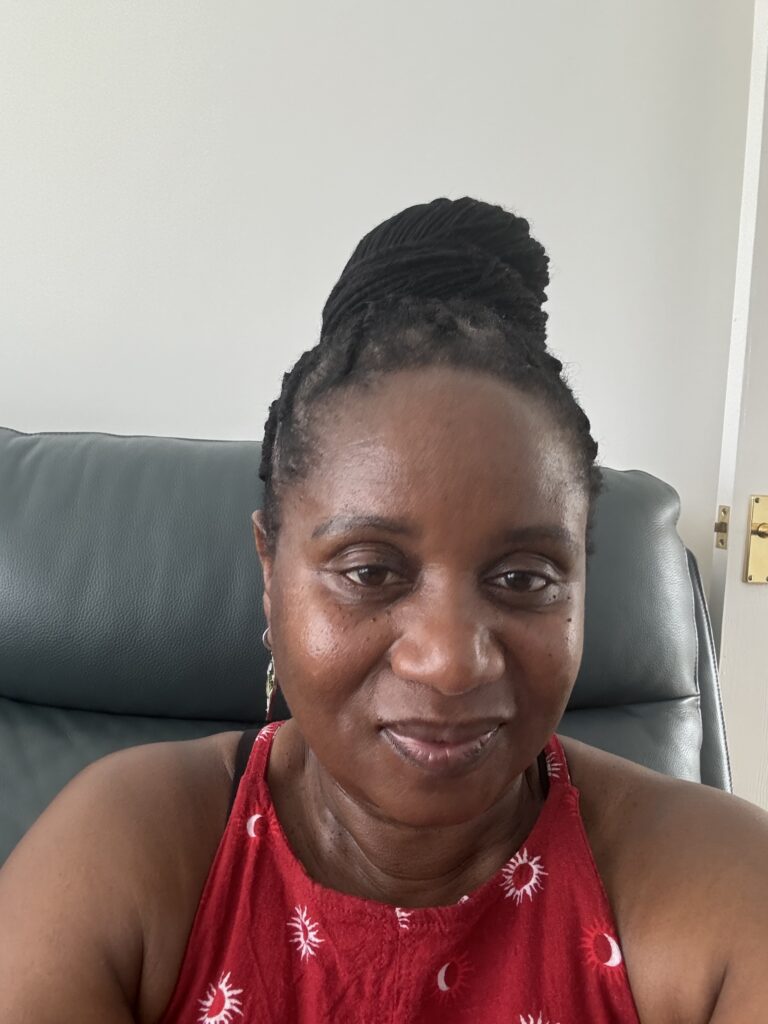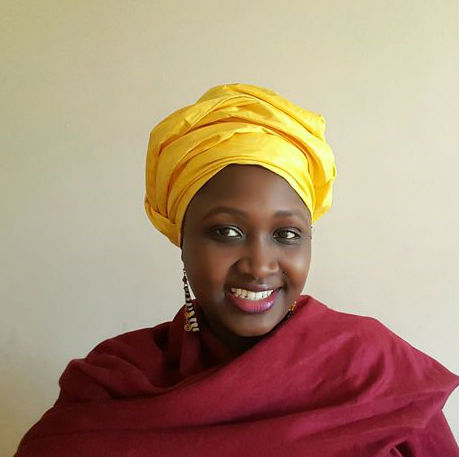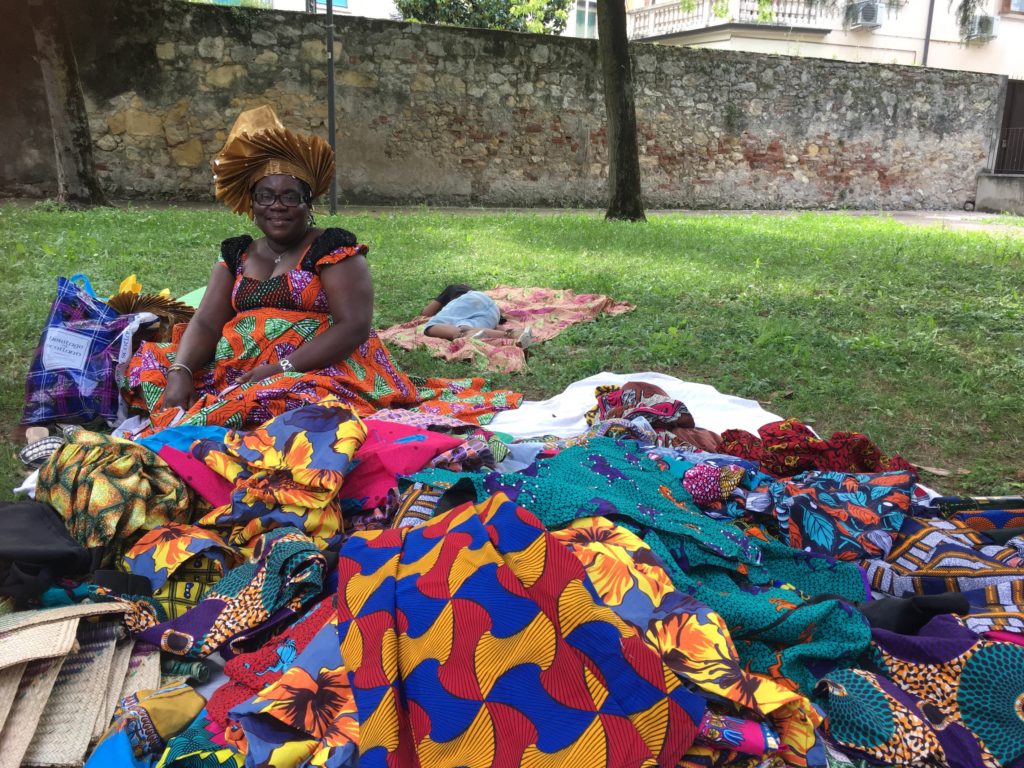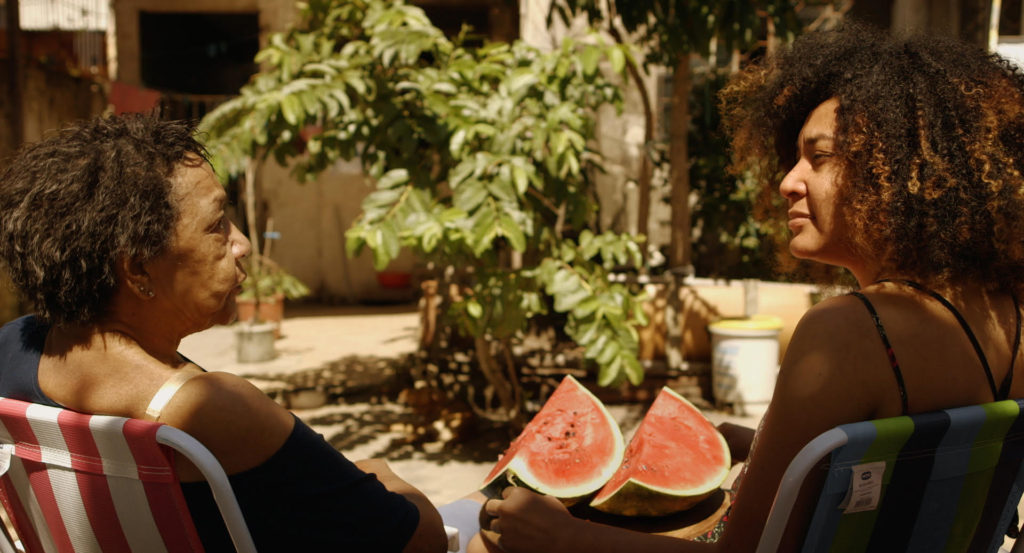Edwig Chawirah lost her livelihood in South Africa then moved to England and found herself in a “nightmare” as a migrant care worker. Now, she wants to fight back and bring fresh hope to disempowered, isolated migrants in the UK.
by Vicky Gayle
Walking into a boardroom to pitch for hundreds of thousands of pounds for a tech platform serving foreign workers in the UK might intimidate even the most confident person you know — and you would not judge them for admitting so. But not Edwig Chawirah. “I love it,” she says, with what sounds like a smile on her face.
It is not the first time the 57-year-old from Zimbabwe has embarked on an entrepreneurial journey: she owned a restaurant in South Africa for nearly 20 years and was close to securing about 300 million South African rand (£12.8 million) for a venture similar to Alibaba. The website would have helped protect vulnerable female traders, who were in danger of being raped or having their goods stolen while travelling across Africa, she explains.
Edwig came to England on a health and care worker visa in 2022. The former businesswoman has experienced the cruelty of labour exploitation as both a care worker and a manager who refused to take part in mistreating others. Edwig’s lived experience and business acumen are the driving force behind her latest venture, Foreign Allied Workers (FAW) Connect — a one-stop online platform to help migrants better navigate their lives in the UK and integrate into workplaces and local communities.

The website will provide holistic support to foreign workers, who often arrive with little knowledge of their employment or legal rights and are isolated from support networks. Migrant workers are particularly vulnerable to abuse and discrimination because of their immigration status and are at an increased risk of mental health problems as a result of their experiences prior to, during, or after relocating.
FAWConnect will seek to ease workers’ transition by hosting guidance on work and immigration, health and wellbeing, and make essential services from insurers to solicitors more accessible.
Subscribers will be connected with legitimate employers and agencies to mitigate workers handing over thousands of pounds in illegal recruitment fees — something Edwig has encountered more than once — and to help them change jobs quickly.
Being unemployed is a particular worry amongst sponsored workers whose right to stay and work in the UK is tied to their employer. A visa condition called ‘no recourse to public funds’ also prevents them from getting most state benefits.
“The core idea is to transform users into active participants in a community to give them a voice and create a sense of belonging, engagement and shared identity.”
“A lot of us [migrant workers] talk on all sorts of platforms, but FAWConnect would create a distinctive online environment, enabling people to start talking on a platform that collects data, which can continuously feed into our advocacy, meaning that interventions will be holistically informed.
“The core idea is to transform users into active participants in a community to give them a voice and create a sense of belonging, engagement and shared identity.”
Launching Edwig’s business will cost at least £160,000. Her team, which consists of entrepreneurial friends and former colleagues from Deloitte Consulting, where she used to work in South Africa, has begun seeking investment.
“Everyday become a nightmare”
The problems Edwig is so passionate about addressing are the ones she has faced herself.
When she arrived in Yorkshire and the Humber, in the north of England, for a care services manager role in April 2022, she felt “fortunate”. She was eager to apply her corporate experience from international companies to this new position.
However, on her first day she was made to sign a letter saying she owed £6,000 for her visa and training costs. Money was deducted monthly from Edwig’s wages until October of last year when she left the company, she explains. She had already spent £8,000 in visa fees and costs to work in England.
Her time with that employer was traumatic. As a result, Edwig has high blood pressure, anxiety and panic attacks.
“Everyday became a nightmare,” she says in her statement. “I was blamed for everything that went wrong … Unachievable targets were set for me, parameters were changed, my salary was reduced, I was demoted [and] my responsibilities were taken away … I became frightened to go to work, I lost confidence, and I would cry at work daily.”
A document outlining Edwig’s testimony, seen by Migrant Women Press, describes her being humiliated, harassed and bullied at work.
“Everyday became a nightmare,” she says in her statement. “I was blamed for everything that went wrong … Unachievable targets were set for me, parameters were changed, my salary was reduced, I was demoted [and] my responsibilities were taken away … I became frightened to go to work, I lost confidence, and I would cry at work daily.”
The experience discouraged her from taking another senior role in social care despite having worked in the human resources and employment law sector for more than 30 years. Edwig’s “victimisation” has continued: she alleged that her former employer provided prospective new companies with unfavourable work references.
After the Covid-19 pandemic, Edwig was “down and out” after losing her job as head of HR and training at HospiceWits, the “largest hospice in South Africa” and her restaurant business — so she seized the opportunity to return to the UK. The first time Edwig moved here was in her twenties to study for a Master’s degree in business administration at Anglia Ruskin University.
“We grabbed an opportunity to come here at face value and trusted that a UK government could never, not in a lifetime, tolerate modern slavery or the kind of mistreatment that has become so rampant in the social care industry,” she says.
“I sold everything to come here because I thought, wow, I’ve seen how people that have gone over have transformed their lives.”
But Edwig’s reality has been far from idyllic. When she reflects on life as a migrant worker, she says “it’s almost like we’ve been sold a dummy”. Everything she had been offered turned out to be a fallacy.

For that reason, Edwig is determined to shift the power imbalance between employees and their sponsors to break the unfortunate cycle of workers being scared to advocate for themselves for fear of losing their visas. Earlier this year, the Bureau of Investigative Journalism (TBIJ) and Citizens Advice reported that about a third (30%) of the 175 people they spoke to on a health and care worker visa feared reprisals and threats to their safety if they complained about, or blew the whistle on their employers. Some of those were women who had experienced sexual abuse and harassment.
“Mine and so many of my colleagues’ reality is that we have been reduced to begging for work if we dare leave a sponsoring employer. It’s no longer about the skills that we have; it’s about the power our employers have to sponsor us and equally to take that sponsorship away at the stroke of the pen.
“We are completely powerless and without voices. Our rights are not recognised,” Edwig argues.
Human beings, not just employees
Calls for reform and stronger safeguards for overseas workers facing labour exploitation have grown louder across several sectors, from anti-trafficking to health and social care. Meanwhile, there is mounting evidence of severe mistreatment of skilled workers by licensed sponsors that are approved by the Home Office to recruit people from abroad.
The issues are well documented, but “little has changed”, and the views of migrant workers continue to be largely excluded from political discourse when creating solutions. Edwig wants these solutions to regard migrant workers as human beings and not just employees.
“The biggest challenge migrants face is that everyone is trying to tackle a sophisticated crime syndicate with old solutions.”
“Many people and organisations are speaking on our behalf, which helps to some extent, but when you haven’t walked in my shoes, you can’t speak as passionately about this,” she says.
“The biggest challenge migrants face is that everyone is trying to tackle a sophisticated crime syndicate with old solutions.”
Behind the scenes of FAWConnect, Edwig will engage care providers and organisations like the Care Quality Commission (CQC), the regulator for health and social care, lobby the Home Office to rethink how it protects migrant workers, and collaborate with people who have lived experience.
“We need to shift out of the traditional norms of how we support migrant workers and into community-centred norms which will truly empower them. Currently, there is so much misinformation. People are demoralised and disengaged, so instead of raising issues, they’re hiding and playing safe and waiting out their five years.”
A health and care worker visa can last up to five years, after which time someone may be able to apply to settle permanently in the UK, also known as ‘indefinite leave to remain’.
On the importance of a platform that connects and prioritises migrant workers, her answer is simple. “At some stage in this country, we will all need care, and when that happens, you want a carer that is engaged and gives you the best service possible.”
To connect with Edwig about FAWConnect, email edwigc@gmail.com
Vicky Gayle is a freelance investigative journalist and editor, who has reported on health inequalities, disability, housing, migration and precarious work. Her career began in local and regional news and she co-led Newsquest's first data investigations unit. You can read her human interest and data-led stories at the Bureau of Investigative Journalism (TBIJ), the Observer, Refinery 29, the Daily Mirror, Black Ballad, the Independent and more.



